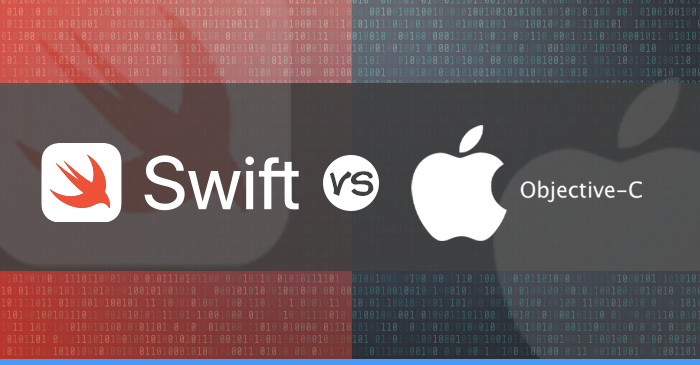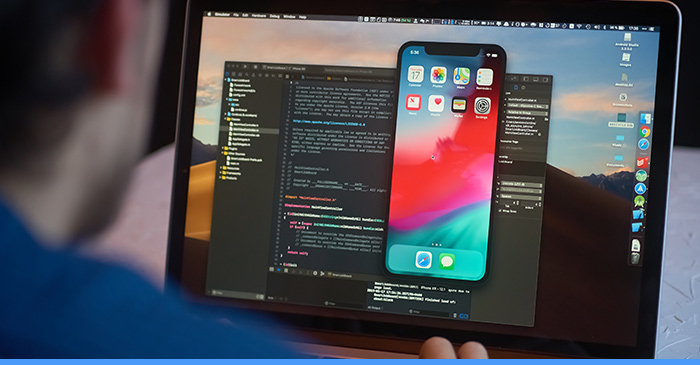
Objective C vs. Swift is likely familiar to you if you are a developer, as it focuses on building native iOS apps. However, if you’re starting in iOS development, it makes sense that you could be considering Swift vs. Objective-C to decide the best option for your future career.
Developers must keep up with the most current programming languages. Because of this, learning is given the top priority at Arturo Digital, and we work to provide our developers access to all the tools they need to advance their skills and prepare for the future. But which one is most preferred when it comes to Swift vs. Objective-C?
The majority of web developers began creating iOS apps using Objective-C. But using it for coding was more complicated. One of the most difficult languages to learn, and the syntax wasn’t very user-friendly either. iOS app developers and development firms shifted from Objc to Swift programming language in 2014 because the latter was flexible to work with.
Swift vs. Objective-C
Objective-C
The learning curve for the straightforward programming language Objective C is minimal. The primary goal of the 1980s-era Objective-C programming language was to increase the complexity of object-oriented programming. After achieving enormous success and popularity, NeXT Computer, Inc. bought Objective-C. It was utilized by the business to create frameworks. Later, Apple purchased the language, and today, Objective-C is the de facto language for creating iOS apps.
This programming language, widely recognized as the greatest by millions of iOS app developers worldwide, enables developers to design and facilitate complex object-oriented programming tasks easily. Over time, Objective-C has developed past the ANSI C language norm. It now has a new set of extensions, which is the main distinction between it and the earlier version. These additions enhance Objective-capability C’s and give it the subtlety and nuance that the ANSI C language lacked.
Swift
Modern programming languages like JavaScript, Python and C# are comparable to Swift. Because of this, it is easier for current developers to work with than Objective C. Swift is much more recent than Objective C and has a long way to go. Swift has been under development since 2010, and it was finally made available in 2014, or about four years later.
Since its first release, Swift has seen several updates, the most recent being Swift 5.5. Swift 5.3 featured several significant changes, including Async/await, a feature that adds asynchronous functions to Swift, Structured Concurrency, which opened up a new set of methods that programmers could use, and more.
Swift vs. Objective-C: Evolution
The compiler-based language Objective-C first appeared in the 1980s. It became the main language for creating iOS and OS X apps after being purchased by Apple. This reliable and enduring code lost some utility after Swift entered the market in 2014. Swift is an open-source language renowned for being incredibly straightforward and unambiguous. The primary distinction between Objective-C and Swift is that, despite being a supplement to C and C++, the former has done away with all of their intricate and dated components.
Learn more: Native Apps Vs. Hybrid Apps: What’s The Difference?
Swift vs. Objective-C: Pros & Cons

Objective-C
Pros
- Maturity: Because it has been around for more than 30 years, the language is well-developed and mature. It also contains a large open-source library and comprehensive documentation and has undergone rigorous testing.
- Dynamic typing: This function makes it easier to write code by anticipating the developer’s thoughts.
- Compatibility: Due to its antiquity, it is compatible with older versions of iOS and macOS.
- Stability: Being an old and tried-and-true language, it is stable and doesn’t need to be updated frequently. Therefore, you won’t have to bother updating to a new version again.
Cons
- Learning: The learning curve is steep because it is built on OOP ideas and has a complicated syntax.
- Not Favorable By Developers: Many developers have ceased using the language since newer, easier alternatives are available, while newbies resist learning an almost obsolete language.
- Limited features: It doesn’t have all the contemporary features, which causes it to operate poorly.
- Security: Due to its age, it is more vulnerable to hacking.
Swift
Pros
User-Friendly: Swift is incredibly user-friendly and simple to learn. It develops quickly and is very clear and succinct.
Open-Source: It can be utilized by commercial and nonprofit organizations and doesn’t require a licensing fee.
Modern Features: Being a new language, it contains contemporary features, including better app monetization, dynamic libraries, and optimized memory management.
Development: This language is simpler to create because fewer codes are needed. This results in significant time savings.
Cons
Versions: Due to the language’s relative youth, frequent modifications necessitate migration to newer versions, which costs time and money.
Compatibility: The language is incompatible with iOS 7.0 and macOS 10.8, among other versions.
Swift vs. Objective-C For iOS Apps

Let’s compare both programming languages to know why developers convert Objective-C to Swift.
Readability
Since Objective-C is based on C, it includes all kinds of keywords, including those that use the @ symbol. Swift, which is not based on C, unifies all the keywords, eliminating the need for several symbols. Additionally, Swift doesn’t require any of the outdated conventions. Using semicolons to end lines or parentheses to enclose conditional phrases inside if/else statements is no longer necessary. Finally, because Swift is similar to spoken English, it is simple for languages like JavaScript or Python to embrace.
Maintenance
There is an issue with the legacy of Objective-C. It cannot evolve because it is based on C; unless C evolves. Like C, Objective-C necessitates programmers to write code files, which is challenging to manage. On the other hand, Swift doesn’t need two separate files because Xcode and the LLVM compiler automatically do it.
Safety
Swift’s syntax doesn’t contain common errors as Objective-C does. Swift immediately alerts developers to bad code in the event of a nil code. This makes Swift a significantly safer language and lowers the possibility of bugs.
Memory Management
In the case of Objective-C, only the Cocoa APIs and object-oriented programming are supported by Automatic Reference Counting (ARC), not the procedural C code and Core Graphics APIs. The developer is now in charge of overall management. Swift is a significantly more cohesive language with effective memory management since the ARC is constant across procedural and object-oriented code paths.
Coding
Heavy coding is not necessary with Swift. It streamlines the procedure and reduces the need for several codes thanks to its contemporary features. Text strings in Objective-C require numerous steps to connect two pieces of data.
Speed
Swift outperforms Objective-C in terms of performance when it comes to speed. Unlike Objective-C, Swift produces speedier code because old conventions do not constrain it.
Libraries
Swift libraries allow for easy updating of apps to newer versions. Swift’s dynamic libraries load immediately into memory, which enhances the app’s performance.
Open-Source
Swift’s availability for free for both commercial and non-commercial use is one of its strongest features. In 2015, it became open-source, allowing a large number of independent developers to provide improvements to the language.
Conclusion
The first step for every web developer who wants to build incredible apps and websites is to settle on a programming language. One of the most promising industries for mobile app developers worldwide is iOS app development. Swift vs. Objective-C – two of the most widely used programming languages for creating iOS apps. They both rank among the highest-paying technical specialties in the US. Arturo Digital has web developers who have mastered both programming languages and can develop the best iOS apps for you.
For further queries, kindly reach out via email.
See also: Laravel vs. WordPress: Which Platform is Better for Business?